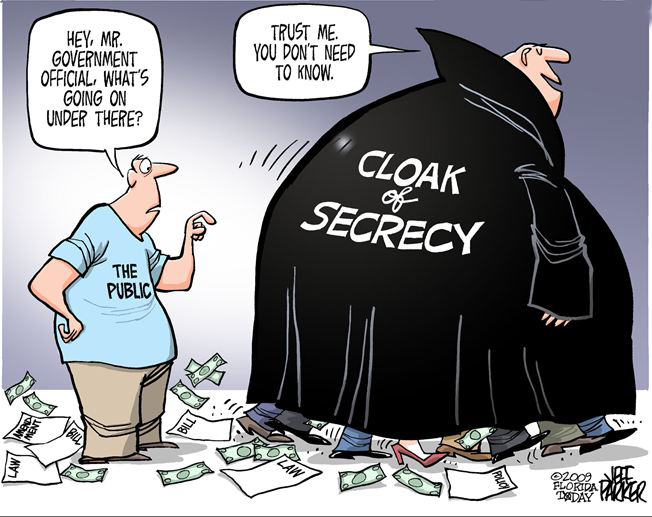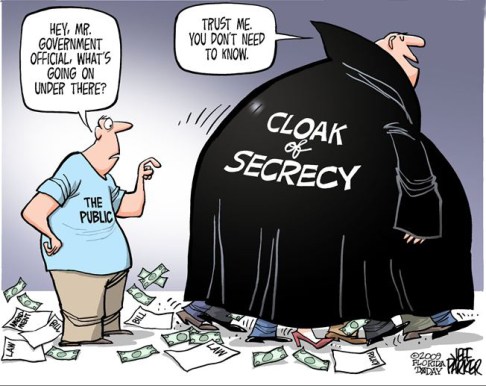Parents United for Public Education has won its state Right To Know request to gain public access to the list of 60 schools identified by the Boston Consulting Group for closure and to the firm’s criteria for school closings — a request for information the District has consistently denied to the public.
Last spring, the Boston Consulting Group came under intense criticism for a controversial plan that promoted school closings, massive charter expansion, and privatization of key functions within the District. Under its multimillion-dollar contract with the William Penn Foundation, BCG agreed to provide the foundation with a number of “contract deliverables,” one of which was identifying 60 schools for closure. The “BCG list” was referenced by former Superintendent Tom Knudsen in public statements, but District officials had refused to release the list stating that it was an internal document and therefore protected from public review.
In December 2012, Parents United filed a complaint with the City Ethics Board around whether the contract between the William Penn Foundation and BCG amounted to lobbying (as opposed to “philanthropy”). Shortly after, with help from the Public Interest Law Center of Philadelphia, we decided to pursue the BCG list of school closings and criteria with the Pennsylvania Office of Open Records.
Our question was simple: Given the fact that Boston Consulting Group had a contract with the William Penn Foundation and not the District, could the District prove BCG’s school closings list had never been shared with anyone else? Had it truly been kept internal?
The District provided two affidavits from Chief Counsel Michael Davis and former Supt. Knudsen, both of whom failed to answer the question. As the OOR ruling states:
“However, the affidavits do not clearly address whether the William Penn Foundation, the party that paid for Boston’s services, had access to the withheld records. The OOR specifically requested whether the William Penn Foundation, or any other third party, had access to the withheld records. … It is the District’s burden to prove, by a preponderance of the evidence, each element of a claimed exemption. Based on the evidence before it, the OOR cannot conclude that the withheld records were “internal” to the District.”
Why should this matter to us?
[Updated 9 a.m. 4/26/2013] For one thing, the OOR ruling opens up for debate whether any of BCG’s work is truly internal if the District cannot assert that the Foundation which paid for all this work did not have access to the materials. BCG did a lot of work for the district beyond this list – from privatizing transportation to expanding charters. We would certainly hope that members of the broader media would take up the challenge to make that work public and accessible.
More importantly, the closing of 24 schools was THE issue of the year. Throughout most of the decision-making process, the public was kept purposefully in the dark. The District argued that it was working closely with consultants to create an internal list it would share with the public when it was ready. But what if others had access to that list? What if others had a chance to weigh in, shape the criteria, vet the list before it became a public announcement? That should matter and matter deeply to all of us.
School closings – and who had influence in that process – are as relevant now (as we deal with stripped down budgets and the mass departure of teachers and principals from the district) as it will be next year when we deal with school mergers and another round of possible school closings.
It is absolutely the public’s right to know what’s in those documents, especially when BCG officials made contractual “deliverable” promises and had unfettered access to top District leaders to promote their list of school closings. It doesn’t matter whether the BCG list became the final list. It matters that the District has failed to understand yet again how the lines separating public good from private interests have been blurred, if not crossed, on issues of dramatic importance to parents, students, and community members.
Sadly, our situation is not unique. As more and more of the corporate ed reform agenda comes via private philanthropy, things are becoming less transparent.
In December 2012, Newark parents won a Right to Know case gaining access to communications between the mayor’s office and officials from Facebook who donated over $100 million to reform Newark schools. The parents argued they had a right to know whether Newark leaders, including Mayor Cory Booker, had promised Facebook officials how the donation would be spent ahead of a public process. Meanwhile, Education Law Center-NJ recently revealed through the Right to Know process that the Broad Foundation had stipulated its $430,000 education grant required that Republican Governor Chris Christie remain in office.
We cannot afford to be naive when large donations come shrouded in secrecy. Parents United pursued this case because we believe school reform relies on transparency and a vibrant public process. As soon as the District releases the information (they have 30 days from April 12), we will publish the full list and criteria here.
You can read the full text of the ruling at the Office of Open Records’ website.



This is such a crucially important ruling. The biggest, most basic theme is that public education must and should be a public good, open to all, and overseen by a public process.
Maybe now we can see the the methodology of this outside agency. This group who new nothing about Philadelphia’s neighborhood’s now will hopefully get the scrutiny that was needed months ago. I cannot wait to see the full list and the reasons why those schools are on the list.
I will be really curious to see the list as well. A number of District staff have pretty openly scorned the list as not being particularly thoughtful. I assume this was the reason school closings were so delayed – because District staff were scrambling to redo the work and come up with a more responsible list of school closings that they could present to the public. That would be my best case scenario with generosity to Supt. Hite. If that were the case, I can’t imagine why the District would waste legal resources opposing the document’s release. It should show that the District was smarter and more thoughtful than BCG. Of course if that isn’t the case, well then we shall have to see.